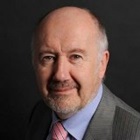|

The annual congress in Barcelona was attended by 6000 people. My thanks to all of you who were able to attend and contribute to making it such a success. The logistical organisation reached new heights of excellence and on your behalf I thank the office staff for their exceptional individual and team work. The independent identity of ECNP is now faithfully reflected in the congress. The programme of the congress was very carefully crafted by the Scientific Programme Committee (SPC) and it was a triumph of balance and excellent content.
We have focused a lot of our recent effort on the involvement of younger people in research through the ECNP Workshop and clinical practice through the ECNP Schools. This is clearly paying off with 25% of our attendees under the age of 35. The extra buzz that young people always bring to scientific meetings was clearly there, which was great to experience.
So, I start as President of ECNP when it is in good shape. It is nevertheless a fact that an institution like ECNP is only as good as its next meeting. The last three years has seen a lot of changes in ECNP to ensure our future. We have been galvanised by the leadership of Yossi Zohar and the management of Alex Schubert. We have also had a highly active and supportive executive council and really outstanding scientific leadership of the SPC by Michel Hamon and now Wim van den Brink.
ECNP was started to create a relatively small annual meeting. The objectives are now more ambitious. The annual congress remains the heart of what we do but we now have a responsibility to support our objectives for research and clinical training at the European level. This, of course, will create the virtuous circle that we will need to nourish the congress.
More strategically, we exist to support the application of neuroscience to functional disorders of the brain. That means in the creation of new medicines, devices, behavioural interventions and methodologies. We will create a nexus for academia, clinical practice and industry, where we can exchange ideas and learn from each other. We must be unapologetic about the need for science, reliable knowledge, to inform treatment innovation in psychiatry in particular. Moreover, industry provides the only way that works for translating and distributing the fruits of research into the clinic.
Our relationship with industry is, however, very likely to change. In part this is a consequence of big pharma’s blockbuster drugs for psychiatric disorders going off patent. Our natural partnership with research and development by big pharma and smaller companies (rather than marketing) will become more obvious and, I have to say, more interesting as a consequence. We want to help catalyse innovation in Europe.
Efforts to improve the application of brain science to psychiatry will need public understanding. Many of us have local experience of how much patients and their families appreciate that scientists take their problems seriously and that neuroscience is starting to offer them hope, something that nihilism (anti-psychiatry) never will. We will endeavour to facilitate public education events before the ECNP congress in the host cities and we will look at ways to harness new ideas about how the experience and views of patients can shape clinical research and training.
In conclusion, we have much to do in the coming years and I am confident we have the collective will to do interesting things, and have fun. Please tell us what you think we should be doing and how you think we can do better.
Best regards,

Guy Goodwin, ECNP President
Add a comment
|